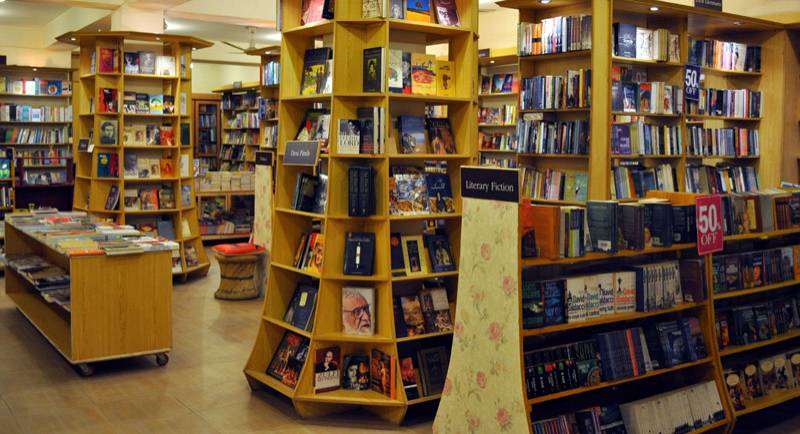
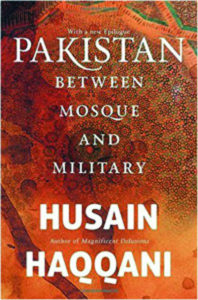
Pakistan Between Mosque and Military
Husain Haqqani
Penguin Viking (2016)
Among US allies in the war against terrorism, Pakistan cannot be easily characterized as either friend or foe. Nuclear-armed Pakistan is an important center of radical Islamic ideas and groups. Since 9/11, the selective cooperation of president General Pervez Musharraf in sharing intelligence with the United States and apprehending al Qaeda members has led to the assumption that Pakistan might be ready to give up its longstanding ties with radical Islam. But Pakistan’s status as an Islamic ideological state is closely linked with the Pakistani elite’s worldview and the praetorian ambitions of its military. This book analyzes the origins of the relationships between Islamist groups and Pakistan’s military, and explores the nation’s quest for identity and security. Tracing how the military has sought U.S. support by making itself useful for concerns of the moment—while continuing to strengthen the mosque-military alliance within Pakistan—Haqqani offers an alternative view of political developments since the country’s independence in 1947.
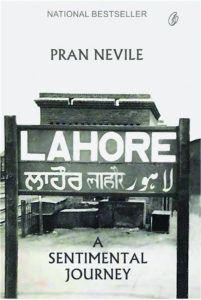
Lahore: A Sentimental Journey
Pran Nevile
ILQA Publications (2016)
The book, Lahore: A Sentimental Journey reminds people of what Lahore was really like before the independence of Pakistan in 1947, the way Hindus, Sikhs and Muslims lived ensemble. The author gives the reader a taste of what Lahore is really like. His book reminisces his childhood memories and gives an opportunity to the reader to see Lahore through the author’s eyes. Pran Nevile further explains how things as we know them became inevitable due to the conflict that was created by the British Empire. The book covers all aspects of Lahore from its rich culture, Mughal architecture, to warm welcoming people. His whole purpose was to remind people about the city of Lahore and revive the love he has in others’ hearts.
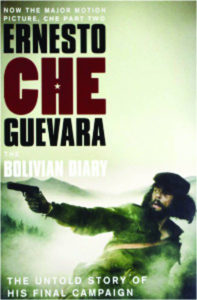
The Bolivian Diary
Ernesto Che Guevara
Harper Perennial (1998)
Che Guevara was more than just an icon on a T-shirt, in his time he was a real revolutionary who played a key part in the Cuban revolution and was aiming to overthrow South American dictatorships to free the people.
This book is a translation of the diary that he wrote when he was in Bolivia with a small team of revolutionaries. It is written with daily notes and reports on their progress as they move through the jungle, avoiding the army that is looking for them and talking to the peasants to get them onside.
They have some early success in skirmishes with the army, but as they go on they suffer from health issues and have to keep continually moving. Their small numbers mean that every battle counts, but as the number of men on the government side increases, they start to lose men and the initiative that they had. Before long they are caught and captured.
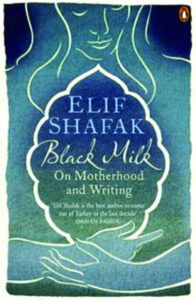
Black Milk: On Motherhood and Writing
Elif Shafak
Penguin (2013)
Postpartum depression affects millions of new mothers every year, and – like most of its victims – Elif Shafak never expected to be one of them.
But after the birth of her first child in 2006, the internationally bestselling Turkish author remembers how, ‘for the first time my adult life . . . words wouldn’t speak to me’.
As her despair finally eased, she sought to resuscitate her writing life by chronicling her own experiences.
In her intimate memoir, she reveals how she struggled to overcome her depression and how literature provided the salvation she so desperately needed.
Elif Shafak is Turkey’s most-read woman writer and an award-winning novelist. She writes in both English and Turkish, and has published 13 books, nine of which are novels, including: The Bastard of Istanbul, The Forty Rules of Love, Honour and her nonfiction memoir Black Milk. Her books have been translated into more than 40 languages.

